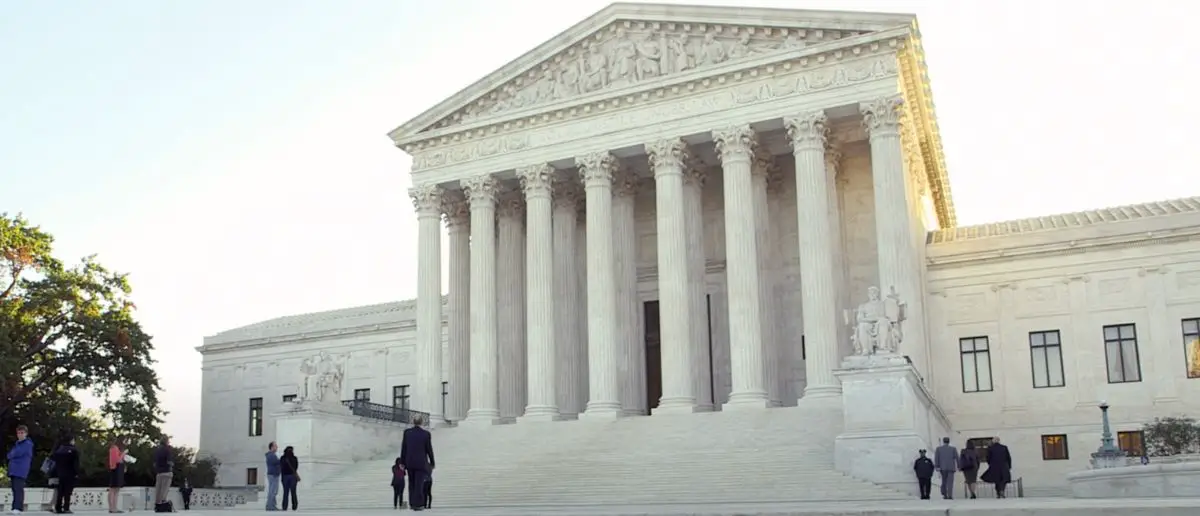
Tensions are high at the U.S. Supreme Court. Because what happens next will be game-changing.
As the U.S. Supreme Court is preparing to hand down an earth-shattering ruling.
A group of 24 states have made an urgent appeal to the U.S. Supreme Court, warning of severe consequences for women’s sports if the Court does not take action in a pivotal case. The states filed a brief on Thursday, asking the Supreme Court to review Warren Petersen v. Jane Doe, a case in which the Ninth Circuit Court of Appeals upheld a ruling blocking Arizona’s 2022 Save Women’s Sports Act. This law, which bans biological males from competing in women’s sports, was challenged by transgender-identifying students who, along with their parents, argued for the right to compete on girls’ teams.
The brief paints a troubling picture of the impact on fairness and safety for female athletes if policies like Arizona’s are overturned. The 24 states, concerned about preserving the integrity of women’s sports, argue that the ruling poses a grave threat to athletic competition for women. The states contend that the physical differences between men and women in sports are undeniable and must be preserved to ensure fairness.
As the brief asserts, “States are regularly hauled into court and must bring with them an army of biologists, endocrinologists, and physicians just to defend policies that have long been viewed as commonsense ways to protect and promote flourishing for women and girls.” These policies, which create female-only sports teams, locker rooms, and bathrooms, are essential to ensuring women’s fair participation in athletics.
The legal complexity surrounding this issue is underscored in the brief, as courts have often been divided on how to interpret the Equal Protection Clause in relation to transgender athletes. The states argue that schools are caught in an untenable position, having to create policies that balance the need to protect girls’ sports from unfair competition with the demand not to exclude transgender students from teams.
“Schools are faced with an impossible task,” the brief notes, “They must create sport-specific policies that protect girls’ sports just enough from unfair or unsafe competition but that don’t exclude all biological males from the girls’ teams.” The brief warns that enforcing such policies may require invasive medical testing, such as monitoring testosterone levels, putting schools at risk of legal and financial consequences if they misapply the rules.
The controversy over transgender athletes competing in women’s sports gained significant national attention after Lia Thomas, a transgender woman, won the 500-yard women’s final at the 2022 NCAA swimming championships. This sparked renewed debates over fairness, with many calling for policies to protect female athletes from competition they argue is unfair.
In April 2023, Payton McNabb, a high school volleyball player from North Carolina, shared her personal story of suffering a career-ending concussion when a transgender player’s spike hit her during a September 2022 match. McNabb, still dealing with ongoing medical issues, testified before the legislature and called for laws like the Arizona measure to ensure fairness in women’s sports.
Trans-identified male volleyball player Blaire Fleming, for @SanJoseStateVB, spikes the ball into the face of a female player for @AztecVB.
This is exactly how @paytonmcnabb_ sustained a neck injury that caused partial paralysis.#SaveWomensSportspic.twitter.com/7EfxCjRZ0K
— Genevieve Gluck (@WomenReadWomen) October 11, 2024
The brief further argues that the U.S. Constitution does not require states to redefine “s*x” to include “gender identity.” “The Constitution does not require States to redefine ‘s*x’ to mean or include ‘gender identity,’” the states argue, emphasizing that the biological distinctions between men and women are real and must be recognized to ensure fair competition.
The brief insists that equal protection should not be used as a blanket justification for allowing transgender women to compete in female sports, as doing so undermines the very essence of equal opportunity. “To fail to acknowledge even our most basic biological differences … risks making the guarantee of equal protection superficial, and so disserving it,” the brief states.
Ultimately, the brief insists that the goal of Arizona’s Save Women’s Sports Act is not to discriminate but to protect women’s sports from unfair competition. The states argue that the law is a necessary measure to ensure girls and women have equitable access to athletic opportunities and to preserve the integrity of female sports.
“The distinction embodied in the statutory scheme here at issue is not marked by misconception and prejudice, nor does it show disrespect for either class,” the brief concludes. “Instead, it seeks to accomplish just what the Act’s title suggests: to save women’s sports from unfair competition and provide meaningful athletic opportunities for girls and women.”
The 24 states that signed the brief are Alabama, Arkansas, Florida, Georgia, Indiana, Iowa, Kansas, Kentucky, Louisiana, Mississippi, Missouri, Montana, Nebraska, New Hampshire, North Dakota, Oklahoma, South Carolina, South Dakota, Tennessee, Texas, Utah, Virginia, and Wyoming. As the Supreme Court decides whether to take up the case, the debate over transgender athletes in women’s sports is likely to remain a flashpoint in the ongoing conversation about fairness, safety, and equality in athletics.
The transgender issue in America has come into focus once more after the election, with many on the Right and some disaffected Left-leaning political pundits pointing to the transgenderism issue as a major reason why the Democrats lost in blowout fashion in the elections.
Europe is usually to the far Left of America, but even many European nations are ahead of the curve in terms of righting the wrongs of the extremism from the transgenderism lobby. Much of the “transgender treatment” care that is legal here in the United States has been banned for youth in certain regions throughout Europe.
Australian News calling CNN guest “hysterical clown” for trying to defend trans men in women’s sports
“Most normal people don't want boys in girls' sports”
The world is waking up to this insanity that’s been forced on the American People pic.twitter.com/5PKuxo2tPx
— Wall Street Apes (@WallStreetApes) November 18, 2024
Stay tuned to the DC Daily Journal.





